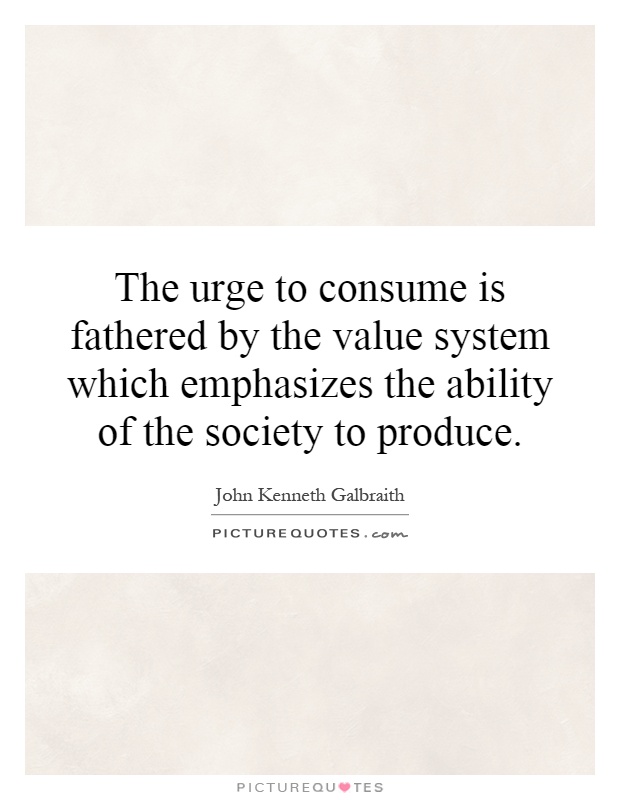The urge to consume is fathered by the value system which emphasizes the ability of the society to produce

The urge to consume is fathered by the value system which emphasizes the ability of the society to produce
John Kenneth Galbraith, a renowned economist and social theorist, was a vocal critic of the prevailing value system that prioritized consumption and production above all else. In his seminal work, "The Affluent Society," Galbraith argued that the urge to consume is fathered by a value system that places undue emphasis on the ability of society to produce goods and services, often at the expense of other important social priorities.Galbraith believed that the modern capitalist society had become obsessed with the idea of economic growth and material wealth, leading to a culture of consumerism that was unsustainable and ultimately detrimental to the well-being of individuals and society as a whole. He argued that the relentless pursuit of economic growth and material possessions had created a society in which people were constantly bombarded with messages encouraging them to consume more and more, regardless of whether they actually needed or even wanted the products being marketed to them.
According to Galbraith, this emphasis on consumption was not simply a result of individual desires or preferences, but was instead a product of the broader value system that prioritized production and economic growth above all else. He believed that the capitalist system had created a culture in which people were conditioned to equate happiness and success with the ability to consume and accumulate material possessions, leading to a never-ending cycle of desire and consumption that could never truly be satisfied.
Galbraith's critique of the value system that underpinned modern consumer society remains as relevant today as it was when he first articulated it in the 1950s. In an era of increasing income inequality, environmental degradation, and social unrest, his insights into the destructive consequences of unchecked consumerism are more important than ever. As we grapple with the challenges of a rapidly changing world, Galbraith's work serves as a powerful reminder of the need to reevaluate our priorities and reconsider the values that drive our society. Only by recognizing the true costs of our obsession with consumption can we hope to build a more sustainable and equitable future for all.












 Friendship Quotes
Friendship Quotes Love Quotes
Love Quotes Life Quotes
Life Quotes Funny Quotes
Funny Quotes Motivational Quotes
Motivational Quotes Inspirational Quotes
Inspirational Quotes